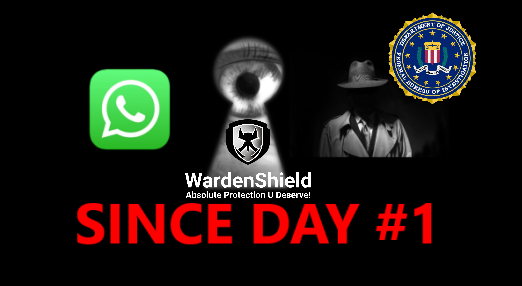Secure your Data with Inferno🔥, Use Code: INFERNO100
FBI's Surveillance Leverage on WhatsApp: A Silent Threat to Civilian Privacy
This article explores recent revelations about the FBI's ability to intercept and extract data from WhatsApp users, leveraging vulnerabilities in the platform and operating with minimal oversight from legal authorities. It also highlights the concerning implications of the latest WhatsApp Desktop update, which allows scripts to be executed silently, potentially facilitating unauthorized surveillance. The piece calls for greater accountability and transparency to protect civilian privacy in the digital age.
DEVELOPMENT AND ECONOMIC THREATS
Phillemon Neluvhalani
7/28/20242 min read


Communication platforms like WhatsApp are the lifelines of our daily interactions. Known for its (False) end-to-end encryption, WhatsApp has long been touted as a secure messaging platform. However, recent revelations have painted a more troubling picture. The FBI, leveraging its sophisticated surveillance capabilities, is reportedly able to intercept and extract data from WhatsApp users, often with the tacit approval of legal authorities. This breach of privacy raises significant concerns.
The Silent Invasion of Privacy
Reports have emerged suggesting that the FBI has found ways to exploit vulnerabilities in WhatsApp, allowing them to siphon off user data without the users’ knowledge. This isn't just a simple matter of security loopholes being exploited; it's a concerted effort to monitor and collect civilian data under the guise of national security.
The most alarming aspect is that these actions appear to be taking place with little to no oversight. Legal frameworks that should ideally protect civilian privacy seem to be looking the other way, granting the FBI a near carte blanche to access sensitive information. This raises the question: where do we draw the line between national security and individual privacy?
WhatsApp Desktop: Tuned With a New Weapon ?
Adding fuel to the fire, the latest WhatsApp Desktop update has introduced a feature that executes scripts silently. While this was initially intended to streamline user experience and improve functionality, it has inadvertently opened a new avenue for potential abuse. Silent script execution means that malicious actors, or even government agencies, could theoretically deploy spyware or other intrusive software without users ever realizing it.
The implications are profound. Not only can private conversations be intercepted, but personal data such as contact lists, location information, and even media files can be extracted and monitored. This level of access could lead to a significant erosion of trust in digital communication platforms.
Legal and Ethical Concerns i have ...
The lack of transparency surrounding these surveillance practices is deeply troubling. Civil liberties advocates argue that this represents a gross overreach by law enforcement agencies, bypassing due process and infringing on the rights of citizens. The fact that legal authorities are seemingly turning a blind eye only exacerbates the issue.
There is a pressing need for greater accountability and oversight. Governments must ensure that surveillance practices are not only necessary and proportionate but also subject to stringent checks and balances. Without such measures, we risk sliding into a state of pervasive surveillance where privacy is an antiquated concept.
As users, it's crucial to stay informed about the security practices of the platforms we use. While WhatsApp has made strides in ensuring secure communication, these recent developments highlight the need for continuous vigilance. It's also imperative for tech companies to bolster their security protocols and provide transparency about their cooperation with law enforcement agencies.
The FBI's use of WhatsApp for data collection underscores a broader debate about privacy in the digital age. Balancing national security interests with individual rights is a delicate task, but one that must be approached with integrity and respect for civil liberties. Only through concerted efforts from both tech companies and legal institutions can we hope to protect our privacy in an increasingly interconnected world.


